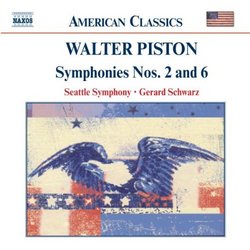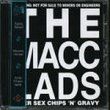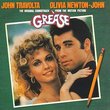| All Artists: Walter Piston, Gerard Schwarz, Seattle Symphony Orchestra Title: Walter Piston: Symphonies Nos. 2 and 6 Members Wishing: 0 Total Copies: 0 Label: Naxos American Release Date: 7/15/2003 Genre: Classical Styles: Historical Periods, Modern, 20th, & 21st Century, Symphonies Number of Discs: 1 SwapaCD Credits: 1 UPC: 636943916124 |
Search - Walter Piston, Gerard Schwarz, Seattle Symphony Orchestra :: Walter Piston: Symphonies Nos. 2 and 6
 | Walter Piston, Gerard Schwarz, Seattle Symphony Orchestra Walter Piston: Symphonies Nos. 2 and 6 Genre: Classical
|
Larger Image |
CD DetailsSimilar CDs
Similarly Requested CDs
|
CD ReviewsA welcome reissue D. C. Cannon | Rockville, MD USA | 03/10/2005 (5 out of 5 stars) "Walter Piston is a great American composer and his neglect is a shame. These are two fine mid century American symphonies - tonal and neo-classical in form but definitely modern. The second is a lively war symphony and the first movement includes one of Piston's few "Americanisms" with a jazz tinged second theme. The Sixth is an equally lovely and melodic work, using such instruments as the harp for an unusually lush sound. Originally issued on the Delos label, Naxos is doing us a great service re-releasing these pieces. As one critic noted, a Piston symphony goes out into the world "with buttons buttoned and pants creased." Do not let that fool you - these are well made and handsome works that any music lover can enjoy." Two of Piston's Finest J Scott Morrison | Middlebury VT, USA | 08/27/2003 (5 out of 5 stars) "Naxos continues its welcome reissue of orchestral music of Walter Piston (1894-1976) performed by Gerard Schwarz conducting the Seattle Symphony originally published in the early 1990s on Delos. They have shuffled the contents of the original discs. This one contains Symphony No. 2 and Symphony No. 6, surely two of Piston's most ingratiating scores.The first movement of Symphony No. 2, written during the Second World War and with an unmistakable American flavor, contains two memorable themes, the opening one a long serious string melody followed then by a raffishly jazzy tune with catchy syncopations. The working-out turns the first theme into a delicious canon. The serene Adagio has a Coplandesque simplicity and one of Piston's loveliest melodies, played first by clarinet and then taken up by other winds. The Finale, a kind of rondo, is propelled to an exciting finish by syncopated brass and percussion. This is the Piston made familiar by his most popular score, 'The Incredible Flutist.'The Sixth Symphony was written for the 75th birthday of the Boston Symphony in 1955 and premièred by them under Charles Munch. Movement I is string-dominated, with flashes of harp and piccolo, and is richly harmonized. A long flowing melody features prominently. The second movement is a scherzo with whirling leggerissimo strings punctuated by manic percussion. There is an undercurrent of anxiety. The Adagio that follows, then, is a welcome island of calm. The cello, against impressionistic harmonies, sings an alluring theme, later handed over to the oboe and other winds. The finale, Allegro energico, returns us to bright triadic harmonies and is unmistakably American in its melodic outlines and jazzy syncopations. The work concludes with a restatement of the symphony's opening theme in glorious full-throated peroration.The Seattle Symphony, from their long familiarity with Piston's music, plays these complex scores with the kind of complete control that leads to the illusion of spontaneity. They obviously loved this music, as do those of us who have been made familiar with it through their recordings.Total timing is a bit short at 50:56.Scott Morrison" DESERT ISLAND DISK! DESERT ISLAND DISK! rustic | 08/29/2006 (5 out of 5 stars) "Buy this disk for the adagio movement from sym. #2 alone. Piston did something here that you don't find from a lot of 20th century composers. He wrote a beautiful melody. Piston had a way of being 20th century, but expressive. I think it was Ravel that said, "Music should be emotional first, and intellectual second.""
|

 Track Listings (7) - Disc #1
Track Listings (7) - Disc #1










